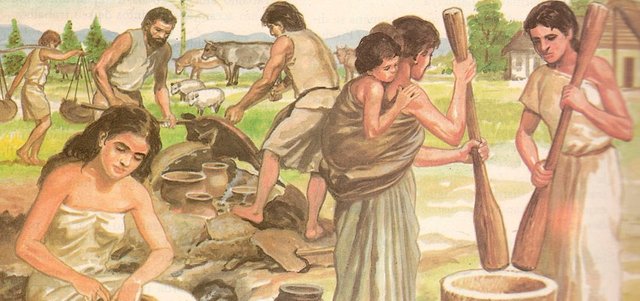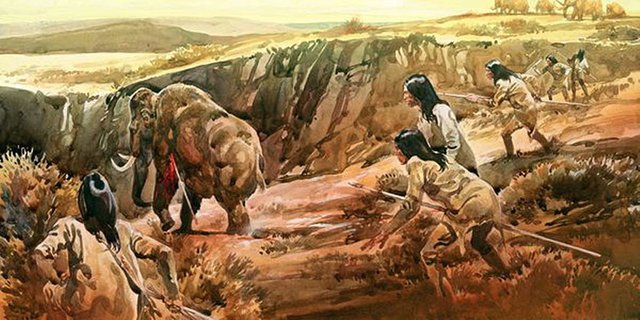The Neolithic Period
There are terms like progress that are very accepted in our culture. Humans progress with time. Each generation is better than the previous one. Each new invention will lead us to a better world. But is this true? We are all aware of the current and past crises closest to history, but what about the oldest, those that happened in the Neolithic?
The Neolithic is a period that extends from 7000 a.C. until 4000 a.C. approximately. In it arose those that are considered the greatest revolutions of humanity: agriculture and livestock. When we study this time in school, we get the impression that it was a great discovery that changed the destiny of humanity. An advance that everyone accepted as an improvement to follow. But it really was not like that, not everyone accepted it. For some agriculture and livestock was a delay and still preferred to be hunters and gatherers.
The Neolithic period
The Neolithic, being one of the most important periods in history, is also one of the most unknown. In the Neolithic arose the pillars of the world in which we live, such as livestock and agriculture, war, property, writing, division of powers, etc. Although, on the other hand, one could also say that it was the moment in which the problems of humanity began.
This time is important because it was when humanity began to transform the environment to adapt it to their needs and the population began to grow exponentially. It is also because, at present, we live the passage to a new geological era, a great planetary change. This step to another era began in the Neolithic. For this reason, understanding the Neolithic and what the previous geological change entailed can give us some clues to know how to carry the future.
What they teach us in the Neolithic school
The Neolithic was, as the essayist Yuval Noah Harari calls it, the greatest fraud in history: "instead of announcing a new era of easy life, the agricultural revolution left farmers with a generally more difficult and less satisfactory life that of hunter-gatherers. " Life as hunter-gatherers was better, it was found that they had less stress due to lack of food, their diet was more nutritious, they had fewer diseases until they began to live more concentrated and with animals, and they did not know wars.
The idea that we are told in the Neolithic schools, that we learned to domesticate the plants and started to create cities and the hunger is over is false. Many agricultural societies abandoned it to return to being hunter-gatherers and to re-adopt agriculture several times. The different natural catastrophes, such as epidemics, deforestation or soil salification, propitiated these round-trip processes. For 5,000 years they went from one state to another depending on the weather conditions.
Native Hunting Neolithic period
What the Neolithic left us
The Neolithic has left us a clear message: a natural environment transformed and well regulated can feed a large number of mouths. But this message has been perverted by man. The irrational exploitation of the environment, the accumulation of seeds, social inequalities and the spirit of supremacy over the weakest are some examples. The hope of a society in harmony with the new economy failed because of the refusal to share.
We can find impressive constructions made by great civilizations such as the pyramids or the Parthenon, but what do they represent if we compare them with the passage of all mankind to agriculture? Once rejected the idea that a single Neolithic revolution broke out in the Middle East, it is considered that there were several more or less simultaneous starting points. Wheat in the Middle East, rice in China and corn in America. All of them constitute the revolution of agriculture that, thanks to the migrations of the first peasants, arrived in Europe.
This is one of the factors that most characterizes the Neolithic, the movement of people from the Middle East. The Neolithic revolution caused a population growth that did not exist until now, which led to the migration of people as well as ideas and materials. Although it is an uncertain period, we are certain that this remote revolution changed everything and is not over yet. The lessons it hides can be very useful for a present in which humanity is taking nature and its resources to the limit of their possibilities.




Nice I love the histories about this and it's really making sense, so cool about your things
Nice I love the histories about this and it's really making sense, so cool about your things